Levi Morris
Review: The Gallery – Come Alive
The Gallery – Come Alive
Released: February 22, 2011
Label: Unsigned
Purchase: iTunes | Amazon | Bandcamp
The Gallery is a band on the rise. Having built grassroots bases in their New England home and later in Florida, they embarked on a national tour in 2009 and have been more recently performing with bands such as The Maine and We the Kings. After a few spins of their EP Come Alive, you’ll see that this brewing rise is well-deserved and you may just be inclined to hop on the bandwagon before there even is a bandwagon.
Just a few seconds into opener “Catalyst”, listeners will likely catch one reason for the band’s increasing popularity: it’s not difficult when your biggest musical influences are already well-established within mainstream and indie circles. In a nutshell, they’re Bruce Springsteen without the synths and saxes, The Hold Steadywith fewer keys and less of a bar-rock sound.
Getting through the rest of the song, listeners will see another reason: “Catalyst” is really good, perhaps even too good. Catchy hooks are a dime a dozen these days, but songs that combine these hooks with such simple, earnest lyrics are harder to come by. It’s true that there are no deep insights, but lines like “This is a walk away / from those dirty little games you played. / I heard your sorrys, but I saw no change. / I gave you love, you gave me pain,” when backed by such honest music and Brendan Cooney’s hometown vocals packs a solid punch. It almost makes the rest of the EP struggle slightly to keep up in comparison, but it gives a valiant effort.
“Ballroom of Broken Hearts” slows down the tempo, but maintains the EP’s pace. Vocally and lyrically, it leans more heavily on The Boss than any other track, telling the tale of a girl “unlucky in lust.” It showcases their mature musicianship by effectively stripping down the first chorus, but doesn’t rely on it for the other choruses, instead adopting a fuller sound becoming less wistful, adapting to the entire song’s structural buildup. It’s less likely to be heard on the radio than “Catalyst”, but it is nonetheless good enough to prove that “Catalyst” wasn’t a fluke.
Tackling a different lyrical theme is “Who’s in the Right”. On one level about a fighting couple, it undeniably speaks to our country’s bigger conflicts as well with the simple observation “We’ll drop bombs all day and night/ to show who’s in the wrong and who’s in the right.” Even though it’s an anti-war song to some extent, it doesn’t fall on the trite clichés that today’s bands loved during the Bush era (i.e. no mention of a “gas war” or “fighting daddy’s battles”). Sincerity abound, it even feels close to The Avett Brothers. Unfortunately, the lyrics are stronger than the music, which relies too much on a bland guitar line.
The lightness of “Last Goodbye” serves as an excellent counter to the heaviness of its preceding track. The drum driven pre-chorus and explosive chorus are certainly engaging, but clocking in at close to five minutes, it runs slightly long.
Rounding out the EP is “Free,” which is actually a bit of a letdown. For once, the music feels too generic and the lyrics are excessively sappy. Though not a terrible song, it’s certainly a disappointment when compared to everything else before it. Not the best end, but it doesn’t detract too much from the quality of the EP on the whole. It’s not the deepest music you’ve ever heard, but it’s a solid effort by a band that you should make a point to know.
8.4
Standout Tracks: “Catalyst” and “Ballroom of Broken Hearts”
Review: Sister City – Carbon Footprint
Sister City – Carbon Footprint
Released: June 14, 2011
Label: Unsigned
Purchase: Bandcamp
Having never heard of Sister City, formed only in 2007, I had no idea what to expect upon downloading their new album Carbon Footprint. I saw the genre “indie punk” thrown around quite a bit, but such a description is too vague to actually say much.
Opener “Hit Too Hard” finally put a sound to the name. Even though it didn’t quite answer the question of what “indie punk” means, it did provide a ballpark sound to work with. Initially, Sister City sounds like an opening band, reminiscent of The Loved Ones or The Measure, taking cues from bigger bands, but still lacking the chops to be headliners themselves. There is a familiar, almost generic feel to the music, but under the surface, there is a passion and effort driving the band, which is demonstrated all throughout the album.
The passion is most easily heard through frontman Adam Linder’s lyrics. Like early Rise Against, he’s usually making a point about the state of the human condition, but instead of actually calling for action like Tim McIlrath, he limits himself to biting observations with a cynicism very much in the vein of Say Anything’s Max Bemis. “The things I want are simple things, like love and trust and sanity” Linder notes on “IMPERATIVE.” Closer “How Much” brings his unease to a climax, “For a couplet I sold what was left of my integrity and I don’t have any goals / but I do have an apartment in a city full of people, and a subtle, sinking feeling we’re all equals.”
Lines like these permeate every song, but unfortunately, few of them actually stick, largely because there’s a distance to them, an apathy that doesn’t inspire the listener to do something about it. Linder’s vocals don’t help much either. They’re neither bad nor particularly good – they just tend to add to the generic overall sound.
While the music in general sounds largely familiar, Sister City does distinguish itself from the pack to some extent with their poignant use of rests. They immediately set to this trend in the stop-start “Hit Too Hard” and continue through with such usages as the pre-chorus holds of “Some Prefer Nettles,” the one beat rests on the repeated chorus of “IMPERATIVE.” The rests are very calculated to add impact to the lyrics, and nearly always work well. It’s just a small touch, but it does make their music more distinct.
There is a certain level of maturity in their musicianship as well. Many of their songs have different phases to them- they don’t usually end up in the same musical place where they were at the beginning, but they’re still within the general sound, so the song isn’t too disjointed. For the most part, this too works fairly consistently, such as with the double-time outro topping off the already engaging “Ellis Island Blues.” The biggest offender with this patchwork style is “Eff That” which suffers from too much schizophrenia. The smooth verses don’t blend well with the No Use For A Name-sounding chorus, and the bridge is much too forced, making it one of the only songs that would be considered weak overall.
While much of their music is familiar, familiarity isn’t always a negative thing either. Sister City wear their influences on their sleeves, and fans of the general scene won’t be disappointed. Much of their music sounds like a lighter version of Against Me!, and they wear this influence proudly, even naming a song “Reinventing Adm Linder.” Ironically, this song is eerily similar to “Hey There Delilah.” Plain White T’s comparison notwithstanding, it’s actually one of the album’s lyrically strongest and catchiest songs overall.
Swaying away from Against Me!, Sister City turn to NOFX with “IMPERATIVE,” driven by a bouncing bass that sounds like it’s straight out of “Timmy the Turtle.” Pulling out all of the stops, “How Much” channelsManchester Orchestra with a slow buildup to a climactic finale. These songs are generally good for what they’re worth, but at the same time, they feel like the diet version of some of your favorite bands.
Overall, even after a few spins, I still find that Sister City is a very difficult band to describe. After some thought, I have concluded that one of the most apt metaphors is that Sister City is a cloud. The band can’t be clearly defined or put into one particular musical box. Their influences are numerous, yet they still have a single cohesive, recognizable sound. Finally, there is definitely substance to their music and lyrics, but when you reach out to touch it, you may not end up feeling much in the end.
7.4
Standout tracks: “Ellis Island Blues” and “Reinventing Adm Linder”
Review: Fleet Foxes – Helplessness Blues
Fleet Foxes – Helplessness Blues
Released: May 2, 2011
Label: Sub Pop
Purchase: iTunes | Insound | Amazon
Indie-folk darlings Fleet Foxes shot to fame in 2008 with the release of their highly acclaimed self-titled debut album. Their vocal harmonies and organic, grassroots lyrics and music that define the band were a unique addition to the prevailing music scene. With the release of their follow up, Helplessness Blues, the band faces the challenge of dealing with their fame and living up to the high bar they already set. With a new level of accessibility, they manage to not only reach this bar, but even surpass it.
All across the board, the band displays a previously unseen level of confidence. Singer Robin Pecknold steps more into the spotlight, not shying behind the backup harmonies, though fans of these harmonies should know that they are still adequately present. The music has much more character, with stronger melodies and more varied instrumentation, such as the violins of “Bedouin Dress” or the effective flutes on “Lorelai”. There is also more experimentation in the musicianship, tending away from the traditional verse-chorus structure, especially in its two-part songs, “The Plains/Bitter Dancer” and “The Shrine/An Argument”.
More important than all of these new strides, however, is the improvement in the lyrics. The band’s slice of Americana on their debut was refreshing, but as enjoyable as the imagery and stories were, the lyrics rarely felt deep or relatable. Their success prevents them from revisiting many of these themes, but they have been supplanted with charming, universal musings and beautifully touching tales of love. In an album packed full of high points, the lyrics are the biggest of them.
“Sim Sala Bim” is an excellent combination of all of these developments. It starts with a calm description of a dream, but vanishes with a swelling burst of strings, leading to the questions, “What makes me love you despite the reservations? What do I see in your eyes besides my reflection hanging high? Are you off somewhere reciting incantations, ‘Sim Sala Bim’ on your tongue?” This climax gives way to a relaxing denouement, the same mood as the beginning. A review of The Avett Brothers’ most recent album said that the reviewer didn’t want to listen to it at work for fear of being forced to tears. In this song and several others on Blues, the threat is just as present.
Several other songs employ similarly engaging song structures. “The Plains/Bitter Dancer” builds with the band’s trademark cascading vocal waves, but later evolves into a sound reminiscent of Simon and Garfunkel. “The Shrine/An Argument” has four movements. Hearing the first, with its surprisingly racing intro and Pecknold’s intense, haunting vocal dynamics, listeners may find it difficult to top, but the tonally darker second movement certainly gives it a run for its money. The blatantly ugly and chaotic woodwind outro is the sole weak part on the entire album.
Although not listed as a two-part song, the titular track is perhaps the most dichotomous. The musically and lyrically reflective second half answers the helplessness blues proposed in the first. Deep, catchy, musically interesting, and five minutes of nirvana in general, it stands out as a strong contender for track of the year.
With such high strengths, one might expect that other songs suffer in comparison, but nearly every single track holds its own even in such great company. The mildly swinging “Bedouin Dress” is a fun jaunt down memory lane. “Lorelai” makes excellent use of its bouncing ¾ time with an exceedingly simple, yet beautiful melody. Instrumentals occasionally feel like wasted tracks, but even “The Cascades” is a highly pleasurable journey. Drummer Josh Tillman takes center stage driving closer “Grown Ocean,” which effectively sums up the experience of the entire album.
The only track that doesn’t compare with the rest is “Blue Spotted Tail.” Although it has a poetic structure similar to “Someone You’d Admire,” “Tail” fails unlike “Admire” because its lyrics go slightly too far over the philosophical deep end. While “Why in the night sky are the lights hung? Why is the Earth moving ‘round the sun, floating in the vacuum with no purpose, not a one?” may seem like deep lyrics, they feel out of place on the album and ultimately boil down to meaningless passing thoughts.
“Tail” aside, the album is packed with strong songs and even stronger songs. I felt that I didn’t appreciate their debut as much as everyone else, but such is not the case with Helplessness Blues. The songs have more personality and the lyrics are greater than I could have expected. Just as their debut was oft-pegged for album of the year, Blues is a worthy follow up already in contention for the title this year.
9.4
Standout Tracks: “Sim Sala Bim”, “Helplessness Blues”, and “Lorelai”
Review: Thursday – No Devolución
Thursday – No Devolución
Released: April 12, 2011
Label: Epitaph Records
Purchase: iTunes | Insound | Amazon
When pre-release songs from No Devolución started streaming online, certain fans decried the notable change in Thursday’s sound. The band has steadily inched from intense to atmospheric since the introduction of synthesizers in A City by the Light Divided. Two albums later, the synths are now the defining part of the sound. Contrary to these fans’ response, though, this style, when coupled with their best lyrics in years, feels like a natural progression that is still a perfect fit for the band.
“No Answers” is most demonstrative of this new sound, with drums backing thick synths and only minimal, yet still effective, guitars until the chorus. The atmosphere created by these perfectly-balanced textures complements the lyrics, which give a feeling of both intimacy and reluctant distance.
More often than not, the guitars take backseat to the other instruments in general, not just the synths. The drums and heavy, active bass drive the music much more frequently than they ever used to, such as in “A Darker Forest” and the U2-reminiscent “Sparks Against the Sun.”
This is not to say that the band has completely abandoned its post-hardcore roots, however. “Open Quotes” is purely vintage Thursday, faltering only when it hits the underwhelming chorus. “Turnpike Divides” pays homage not only to their New Jersey origins, but their earlier sound with heavier guitars and the blend of singing and screaming in the chorus.
The balance between heavy and atmospheric has produced some of Thursday’s best songs in years. “Sparks Against the Sun” mixes a distorted bass line with an meaningful piano progression to create a song that’s engaging before the singing even begins. The pre-chorus is extended so listeners can bask in the music before building up with a two measure synth line, leading to a powerful chorus.
“Past and Future Ruins” begins with a minute of anticipatory guitars and atmospheric noises until the intense drums kick in. The vocals and drums carry the song until the explosive chorus, which culminates in some of the darkest music and loudest howling that Thursday has every produced. Adding to this power are the excellent lyrics, a lamentation of our increasingly artificial culture.
No Devolución’s lyrics are also an excellent return for the band, yielding some of their best since their 2001 masterpiece Full Collapse. They cover universal themes such as broken relationships and satisfaction with one’s life, such as when “A Gun in the First Act” asks, “Do you find sleep comes easy / dancing with the empty silhouette of everything?” Even when one can’t discern a specific meaning, the careful word choice almost always sounds meaningful.
In fact, the lyrics are so integral to the album that they are a necessary part of many songs. As musically wonderful as almost every song is individually, some may have a tendency to sound similar or blend together were it not for the lyrics to give each a subtle personality.
The only songs that come up short in lyrics are the musically peppy “Millimeter” and “Magnets Caught in a Metal Heart,” the latter of which is weakest in terms of music as well. For a lighter song, it doesn’t use the synths as one may expect and Geoff Rickly’s vocals sound uncharacteristically bland.
The change in style has also hurt Rickly’s vocals on the whole. He employs an atmospheric moan in many songs, even sounding similar to Deftones’ Chino Moreno in the chorus of opener “Fast to the End.” With the exception of the two songs involving screams and the beautifully raw, stripped-bare “Empty Glass,” there is a general lack of dynamic range throughout the album.
Almost anticipating fans’ response to the album, the epic closing track “Stay True” reminds listeners to not sell out, to remain who they are. Looking beneath the musical surface, the soul of Thursday has followed this advice and remained true to itself. No Devolución is an excellent, progressive step forward for a band that appeared to have their best work already behind them.
8.9
Standout Tracks: “Sparks Against the Sun”, “Past and Future Ruins”, and “A Gun in the First Act”
Review: The Joy Formidable – The Big Roar
The Joy Formidable – The Big Roar
Released: March 15, 2011
Label: Canvasback/ATL
Purchase: iTunes | Insound | Amazon
Do you remember that feeling you had the first time you heard the explosive chorus of “Adam’s Song”? So much passion and energy was wrought by just a few simple power chords. Although that was years ago and the magic has waned, The Joy Formidable, a three-piece band from Wales seeks to recreate that epic feeling on their debut The Big Roar and succeeds wondrously.
Although Roar is technically their debut, TJF are no strangers on the indie scene. Formed in 2007, they have gained popularity through the release of numerous singles and the mini-album A Balloon Called Moaning, not to mention a moderate amount of notoriety for having a video banned from YouTube. In fact, half of Balloon’s songs have been re-vamped for Roar, and what were good songs before have been turned into near-masterpieces, fitting in with the rest of Roar.
The band jumps right out of the gate with “The Everchanging Spectrum of a Lie,” evoking the fuzzy sounds of Silversun Pickups and The Smashing Pumpkins. Upon hitting the chorus, however, The Joy Formidable distinguish themselves from these influences. Where Smashing Pumpkins are brooding and Silversun Pickups are atmospheric, TJF have a constant intensity. The song ends with an instrumental buildup that transcends the sound of headphones or speakers, a sound that demands to be heard live.
This transcendent feeling emerges time and time again on Roar. “Cradle” is pop perfection- clapping along feels mandatory. The chorus of “Chapter 2” is such a simplistic progression, but it feels fresh and huge. “Whirring” also employs a lengthy instrumental breakdown that builds up the sound to epic proportions.
Relying on a huge sound in song after song would make them a one trick pony, but TJF is incredibly creative in their musicianship as well. They don’t write songs based on a variety of riffs, and one would think that their fuzzy sound would grow monotonous quickly, but it doesn’t. They manage to make great songs through the creative use of their simple tools.
For example, “Whirring” uses only three notes in its main line, but different accents on repetitions and the changing backing guitar chords create interesting layers. “Austere” is driven by the drum beat and bass line and has no real chorus. “Llaw=Wall” is a dualistic song, as indicated by the title. The first half is soft and atmospheric, but explodes in a wall of sound halfway through. In the midst of this, there is a beautiful, brief pause to deliver the line, “You’re the ugly truth.” A couple of verses, choruses, and a bridge rarely appease The Joy Formidable.
Another strength of the band is a charismatic, talented frontwoman. The adorable Ritzy Bryan blazes on the guitar, and her vocals are among the best in indie rock. She has a great amount of versatility in terms of both range and in the emotion of her singing.
This isn’t to denigrate the accomplishments of the other band members, though. Bassist Rhydian Dafydd takes center stage and carries songs such as “Austere” and “A Heavy Abacus.” Drummer Matt Thomas provides the consistently impressive backbone to each song and shines through especially in the furious “I Don’t Want to See You Like This” and the double-bass section in “Whirring.”
The lyrics don’t always reach the high bar set by the music and vocals. They often have a certain poetic imagery about them, but while some lines are straightforward, others are moderately baffling (“Abacus, haunting me/Abacus, watching me”).
The only other mild complaint is that a couple of songs don’t have as much strength or lasting power as others. “A Heavy Abacus” is a mid-tempo number that relies on a lot of power chords and lacks the punch of other songs. “Buoy” may have better served as a softer number to come down from the powerhouse “Whirring” right before it, but instead just feels overshadowed as it is.
These are only minor faults with an album great on so many levels. The vocals, musicianship, and big sound make The Big Roar an excellent debut and The Joy Formidable a band to watch in the coming years.
9.1
Standout Tracks: “I Don’t Want to See You Like This,” “Whirring,” “Cradle”
Review: Toro Y Moi – Underneath the Pine
Toro Y Moi – Underneath the Pine
Released: February 22, 2011
Label: Carpark Records
Purchase: iTunes | Insound | Amazon
Lovely album art, isn’t it? They say that one should never judge a book by its cover, and while it wouldn’t be entirely correct to dismiss Toro Y Moi’s Underneath the Pine on its cover alone, it is actually nice visual representation for the music: dated, a failed attempt at artistry, and generally ugly.
Quickly opening the case and popping in the CD (or eschewing the visual assault altogether with a digital copy), the listener is greeted with the aptly titled intro, “Intro/Chi Chi”. The opening fuzzy synthesizers are nearly as hideous as the album art, but after a minute, drums and bass reminiscent of Twin Shadow kick in, providing some hope for what lies ahead. Unfortunately, despite a few bright spots, much of this hope is in vain.
Pine is very much an acquired taste, and unless one already has an affinity for the muddled, retro sound that Chazwick Bundick, the man behind it all, is trying to convey, there isn’t much to like. It isn’t that he can’t write music; his creative decisions are very intentional and have a particular audience, but the end result will likely sound off to the average listener.
Much of the blame for this sound lies in two sources: the vocals and the synths. Bundick’s high pitched vocals, while unique, have an airiness that makes him sound in near-perpetual falsetto. Needless to say, this only has a limited amount of utility. Instead of clearly defined vocal lines, the singing occasionally comes off more as an off-putting, calculated series of moans (see “Before I’m Done” or “Good Hold”). As mentioned above, there is obviously a stylistic method to his madness, but that doesn’t make the result any less mad.
The biggest problem with the synths isn’t excess, but irresponsibility. Many songs contain background synths which don’t serve much purpose but to outline the current chord. However, in most cases in which they are used, the distortion gives them a very dreary sound, which, combined with the vocals, often drags the entire song down. While it is usually just a case of sounding generally muddy, the background instrument in “Good Hold,” actually a piano in this case, just plays terrible notes that don’t blend with the sound at all.
All of that being said, however, there are a few good songs on the album, and that’s not even a qualified statement of “good compared to the rest of the album.” It is no coincidence that these songs happen to be the singles, the songs that are naturally going to be most accessible. “New Beat” is fairly infectious, vocal weakness aside, with a synth line seemingly torn straight from a Sega Genesis. “Got Blinded” is a fun, vaguely 60s song with wonderfully layered synths, piano, and bass, and a rarity on the album, it even has a memorable chorus. “Still Sound” starts with a strong bass line and three well-blended synths, and the bouncing singing actually has personality. These are fun, memorable songs that are likely the only to warrant repeat listens.
The rest of the songs never seem to rise above the hindering synths and vocals. There are rarely moments that even stick out and make the song overcome the mire of mediocrity. In fact, individual moments in the song may even make things worse. “Good Hold” (notice how many times this song has been negatively mentioned?) may perhaps be most notable for its extreme shift of all sound to the left speaker, which I personally found physically uncomfortable in headphones.
Not even the lyrics can save the songs. Not only are they often drowned out by the music, they are difficult to understand, again due to the vocals. Those that I could make out, with the exception of “Still Sound,” rarely rose above the simple level of typical relationship songs.
I rarely say this when listening to music, but Pine is a largely unpleasant experience. It’s hard to define exactly, but it feels like in some sense, it just lacks “music.” While I normally write it off as not my taste, I can see few people actually getting into this music, with the exception of the singles. Too much of it sounds dreary without justification, and listening to it simply becomes a drag. Bundick clearly put effort into his music, but it nonetheless has very limited appeal.
5.5
Standout Tracks: “New Beat”, “Got Blinded”, and “Still Sound”
Review: The Streets – Computers and Blues
The Streets – Computers and Blues
Released: February 22 (Europe), March 29 (U.S.)
Label: Warner Bros. UK
Purchase: iTunes | Insound | Amazon
Mike Skinner, rap name The Streets, faced a musical dilemma, but eventually came out on top. His first two albums were quite successful and nearly universally acclaimed. Unfortunately, both of them were about the common experiences in the life of a regular person. With such popularity, one can hardly harvest lyrical material from the same source for later albums.
As such, the two albums that followed didn’t have nearly the impact or the reception that his previous work did. His latest and final album, Computers and Blues, seeks to buck the trend and strike a balance between the two sides of Mike Skinner. All in all, it boils down to his best album in years.
The signature elements of The Streets make a return: the intentionally unpolished laptop-produced music, the unhurried, off-beat rapping, and of course Mike Skinner’s Mockney accent. This time around, he takes his computer beats to a whole new level, incorporating many sounds from the 8-bit era.
This is demonstrated by the opening to “Outside Inside”. The Nintendo-era sounds promptly give way to a Spanish guitar backing the first verse, which sounds odd and hollow until a techno bass fades in beneath it, rendering a sense of completion to the beat. Lyrically, it doesn’t have the deepest content, but a song about getting high does hearken back to the themes that made him popular to begin with, so it does provide a hopeful start.
Unfortunately, the next song is the biggest letdown on the album. “Going through Hell”, has music that just never works for the song, and the lyrics, while meant to be inspiring, come off more as the faux philosophy of his previous album, Everything is Borrowed.
This is deftly overcome by the wondrous “Puzzled by People”. In addition to boasting great beats and some entertaining and clever crossword-based lyrics (“I’m 2 down and you’re 1 across the room/Beginning with I and ending in U/Beginning in my I and ending as an X”), the song hits deep. One can empathize with the feeling of not understanding others, and the simple way he finds meaning in this puzzle is touching.
Skinner implements similar wordplay later on the album in the song “ABC”, in which he attempts to use every letter in sequence as a word, though in that case, it is more of a fun diversion than a serious song.
Compared to his past two albums, Computers and Blues is more personal on the whole. “Blip on a Screen” strays into new territory for Skinner, with him singing to his unborn child. “We Can Never Be Friends” is a break up song that stands up well next to his past hit “Dry Your Eyes”. “Trust Me” is a short and sweet song with nice beats and a simple message of unity. The last track, “Lock the Locks”, an ambient song about leaving his life behind, is a perfectly fitting final bow to his career.
Skinner isn’t completely free from his Everything is Borrowed philosophical musings, however. There are a few forgettable songs such as “Those That Don’t Know”, the hiccupping “Soldier”, and “Trying to Kill Me”, one of the only songs that breaks his usually effortless and impressive flow.
Given the turn of his career, some breathed a sigh of relief when Skinner announced that Computer and Blueswould be the last album by The Streets. Many would rather that he end with mediocrity than continue on a downward path for years. Computers and Blues defies expectations, however, and proves to be a competent end to his career. It doesn’t quite reclaim his former glory, but it’s a good note to leave on.
7.7
Standout Tracks: “Puzzled by People”, “Blip on a Screen”, and “We Can Never Be Friends”
Review: Cut Copy – Zonoscope
Cut Copy – Zonoscope
Released: February 15, 2011
Label: Modular Fontana
Purchase: iTunes | Insound | Amazon
Daft Punk recently rocked movie theaters and headphones with their soundtrack to Tron: Legacy, but there hasn’t been much to keep the dance going since then. Listeners in this plight need only to take a gander at Australia’s Cut Copy for their next dance-rock fix. Their third album, Zonoscope, was released February 15, and when it shines, it shines brightly.
The party starts with the techno opening to “Need You Now”, building up and adding layers of sound until Dan Whitford’s vocals kick in. Though initially slightly off-putting, in this song, he displays a decent range and contributes his own unique part up to the climactic ending. It is a great way to open the album and a display of Cut Copy playing to their strengths.
These strengths shine through for much of the first half of Zonoscope. “Pharoahs & Pyramids” begins with an intriguing synth intro to build anticipation. Slowly, more instruments and layers are added, creating a richly textured musical landscape. As the music swells, it suddenly gives way to a fun, syncopated bridge, eventually erupting into dance nirvana.
“Blink and You’ll Miss a Revolution” is full of musical mischief, with wooden blocks belying the initial bass groove. As the song continues, though, the music evolves, not only by adding more layers, but by changing the placement and instrumentation of these starting musical lines. By the time the slower instrumental “Strange Nostalgia for the Future” kicks in, it is a much-deserved break from the energy-infused first half.
Unfortunately, it is also at this point that the fun begins to wane, as the album is rather front-heavy. Listeners may float along with the stripped down “This is All We’ve Got,” but for the most part, it is a forgettable journey. The same can be said of the overly-long “Hanging Onto Every Heartbeat.”
“Alisa” boasts some delightful synths in the intro and pre-chorus, but these give way to a more basic guitar and drums combination. The song isn’t bad, and the chorus has a definite energy, but it lacks the spark of earlier tracks.
The party eventually recovers with “Corner in the Sky,” a wonderfully ambient number. Bolstered by a deep, techno bass, a great pre-chorus synth line, and the explosive chorus, it brings the sound full circle and paves the way for closer “Sun God”. While not a great song, especially vocally and lyrically, it does a good job with winding down for the night, though it does border on the excessive with ten minutes of closing instrumentals.
Cut Copy have definite skills in their musicianship, and their most consistent weakness lies in the vocals and lyrics. Most of the time, Whitford’s voice lacks passion and he slurs his words. It serves a purpose as another instrument to add to the texture, but little more.
The same can be said of the lyrics, which, with the exception of “Corner of the Sky”, rarely rise above a surface depth. This is much more acceptable though, as the words don’t really matter with music so rich.
Zonoscope is exceptional when it plays to Cut Copy’s strengths, but falters when it strays from them. Even so, the excellent highs far outweigh the forgettable, skippable lows. They are talented musicians, but they should stick to what they know best in the future.
7.6
Standout Tracks: “Need You Now”, “Pharoahs & Pyramids”, and “Corner of the Sky”
Review: Bright Eyes – The People’s Key
Bright Eyes – The People’s Key
Released: February 15, 2011
Label: Saddle Creek Records
Purchase: iTunes | Insound | Amazon
In the first single from The People’s Key, “Shell Games”, frontman Conor Oberst reflects on his career, referencing the covers of his past few albums and suggesting that fame is a “heavy love.” Such nostalgia should be no surprise, as this will be his seventh and final album as Bright Eyes. Even though this is the only song that lyrically reaches back to his past, it is clear that he had the past on his mind through much of the writing process of this album, taking much from his back catalog musically. Bright Eyes fans may like the prospect, but in reality, it turns out to be one of the album’s significant weaknesses.
As Oberst is wont to do, he opens with a strange monologue, this time a person explaining his vision of life’s origins. This appropriately sets the tone for the album’s major motif: an exploration of different schools of religious thought. When a lonely electric guitar emerges from the speech, listeners are exposed to a darker Bright Eyes, one evocative of Brand New. The song continues to build, adding instruments at effective times, eventually climaxing into its epic end. After a couple of weaker side projects, Oberst is back to form… for a while.
“Shell Games” starts with a familiar Bright Eyes chord progression (think “Clairaudients”), but soon kicks into an odd synth number evocative of Digital Ash in a Digital Urn. Widely regarded as one of Oberst’s weaker efforts, this is perhaps not one of the better sources from which to draw inspiration, but Key does so quite often. The song’s structure and lyrics mostly raise it up above the weaker music, but unfortunately, other songs aren’t so lucky.
“Approximate Sunlight” is one such song. While some may applaud the song’s experimentation, it is very difficult to listen to. The vocals have a hollow echo, which is frustratingly used on nearly half of Key’s songs, and the chorus is mildly cringe-inducing. There are some decent atmospheric guitars, but they are drowned out by excessive production. The lyrics don’t warrant the dark ambience, and there’s no real payoff to the song.
“A Machine Spiritual (The People’s Key)” is a better use of the digital sound, complementing the general feeling of the moderately vague lyrics. Despite going digitally overboard for one repetition of the main theme, the song’s structure and catchy chorus helps it overcome the overproduction. “Triple Spiral” also manages a nice balance between the new and old sounds, making it one of the better songs on the album.
“Haile Selassie” draws musical inspiration from another well: Oberst’s solo material. Sounding very much like a B-side from his self-titled album, it has a fun, bouncy air, but can’t sustain itself for its full length. “Jejune Stars” is similarly upbeat and actually reminiscent of label-mates Cursive. The playful guitars blend well with the lyrics, making it a simple, pleasant song.
While The People’s Key’s lyrics are not bad, it doesn’t feel as if Oberst is trying as hard this time around. Bright Eyes always drew such strength from very simple, very relatable lyrics (e.g. “I’m leaving this place, and there’s nothing I’m planning to take, just you… just you”). On The People’s Key, however, they’re much more vague and the references more obscure. Lines like “Now you are how you were when you were real,” may make sense in context (key word may), but they lack the simple intimacy of previous material, partly because of the album’s themes. Oberst isn’t making observations about life, but general statements relating to different religions, which are much harder to connect to.
The one song that breaks this mold, both musically and lyrically, is the beautiful “Ladder Song,” which is actually one of the strongest tracks that Oberst has put to record. A touching piano complements Oberst waxing poetic about death: “You are not alone in anything. You are not unique in dying.” A late song, it is a welcome respite from some of the album’s weaknesses and highlights exactly what The People’s Key is otherwise missing.
It may be harsh to say that The People’s Key is a disappointment, but it’s hard to deny that there is room for improvement. After the brilliance of Cassadaga, Bright Eyes reverted to a sound that wasn’t widely welcomed the first time around. It isn’t omnipresent like in Digital Ash, but the digital specter rising from those ashes haunts too many songs in either the vocals or music. Although not without its strong points, The People’s Keywon’t be the one that Bright Eyes is remembered for.
7.2
Standout Tracks: “Firewall”, “Triple Spiral”, “Ladder Song”
Review: Ghostface Killah – Apollo Kids
Ghostface Killah – Apollo Kids
Released: December 21, 2010
Label: Def Jam
Purchase: iTunes | Insound | Amazon
Despite being a largely consistent critical hit across the fifteen years in his solo career, former Wu-Tang Clan member Ghostface Killah has never been able to tap into the commercial success of his former group. His last album, Ghostdini was panned for straying from what he did best, and some feared that he was beginning to lose his touch. His ninth album, Apollo Kids, proves that this was only a misstep and not an indication of future trends.
Ghostface employs his traditional alchemy by combining ’70’s samples, innumerable guest stars, and stories of growing up on the streets of Staten Island, yielding gold in track after track. One of the better samples comes immediately, with Ghostface asking on “Purified Thoughts”, “Am I a good man?” A reverent reflection on how far he has come, the theme of divinity is appropriate for his status in the rap world. This segues nicely into the acceptance of his rise in “Superstar,” boasting some of the strongest music on the album.
Not content to bask in the good life, though, Ghostface is quick to pay respect to his roots, and a good half of the album focuses on different facets of this theme. The gritty “Black Tequila” draws comparisons between New York gangs and Italian mobsters. “In Tha Park” traces Ghostface’s origins, paying homage to his musical and social influences. The album’s best track, “Ghetto” hits all of the right notes. The sample (Marlena Shaw‘s “Woman of the Ghetto”) is touching enough on its own, but to hear the Ghostface and his guests’ responses to such questions as “How do you raise your kids in the ghetto?,” driven by an appropriately soft beat, propels the song to a new level.
The album’s tracks focusing on relationships, or lack thereof, are less effective. The sample on single “2getha Baby” breaks the pace of the song (and through a bold looping decision, even breaks its own pace), but it just isn’t impactful enough to warrant such a break. “Handcuffin’ Them Hoes” is a standard “love ’em then leave ’em” rap that delves into crassness that Ghostface should be above by this point in his career. Guest artist Jim Jones‘ voice fits the beat and lyrics, but that isn’t necessarily a good thing.
Jones aside, many of the guests on Kids pack a punch. Busta Rhymes intricately weaves his way through an exciting verse on the already energetic “Superstar.” Black Thought infuses his rhymes with real passion on “In Tha Park”, aptly concluding his story with “That’s the reason for my real rap penmanship. / That’s where I started it and that’s where I’mma finish it.” Fellow Wu-Tang members Raekwon, U-God, and Method Man bring the album to a strong finish. If the other guests fall short, it’s more often because of what they’re stacked up against rather than their own deficiencies.
Even though Kanye West shook up the rap world only a few weeks before the release of Apollo Kids, Ghostface shouldn’t be overlooked. In contrast to West’s bombastic, radio-friendly songs, Ghostface’s gangster rap is more down to earth, focusing on the content instead of catchy choruses (half of his songs don’t have one to begin with). It won’t make him a commercial success, but it demonstrates his continued relevance in the rap world.
8.4
Standout Tracks: “Superstar”, “In Tha Park”, “Ghetto”

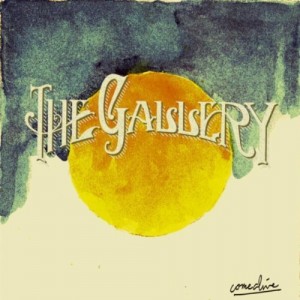
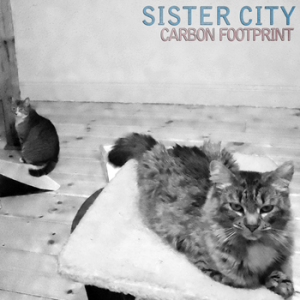
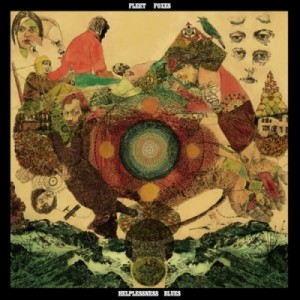
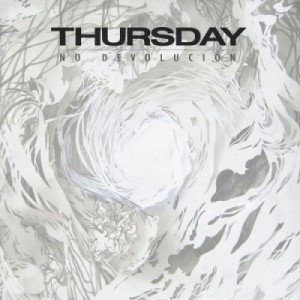
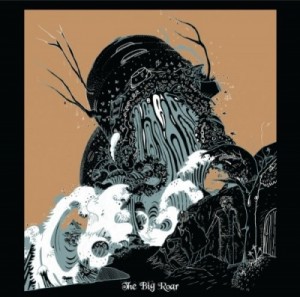

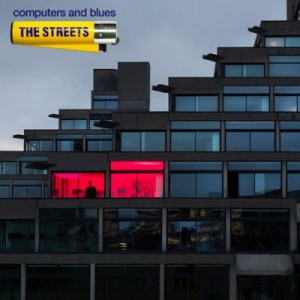


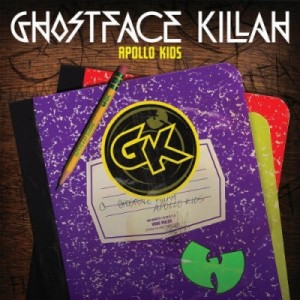
Connect